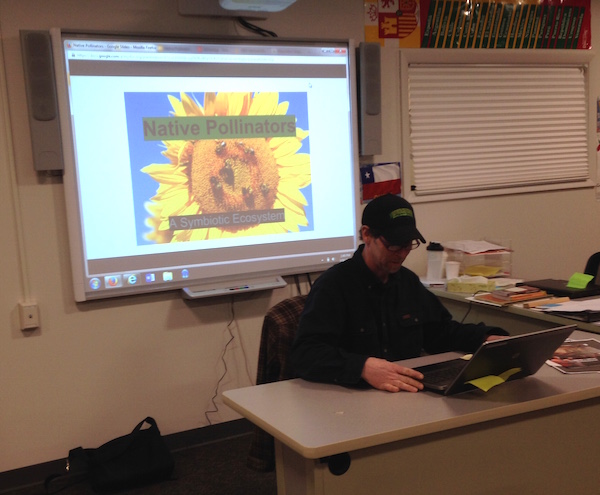 .
.
So since I left MetaFilter almost a year ago, my goal was to spend more time “librarianing” I have a part time job with the Internet Archive running Open Library. I write for The Message a Medium publication, sometimes about librarianship and sometimes not. I write monthly for Computers in Libraries. I do my local technology instruction through the Adult Education program at the local vocational high school. In the past I’ve also done a lot of “How I do it” talks on the road at library conferences. I have not been doing that this month. Instead, I’ve been picking up more local tech instruction work, some paid and some unpaid. It’s been a fun busy week here and I thought I’d outline a few things I’ve done that people might be interested in.
- I taught an iPad class in a “pop up” university in the local town. Some local folks started Bethel University a local skillshare program. I offered an iPad class. People could read the list of classes via a home made WordPress setup and RSVP via EventBrite. I had ten students, most new-ish to the world of iPads and we talked about a lot of iPad features, did some exercises together and I answered a lot of questions. Fun. Free for everyone. I donated my time. I got photocopies for free. The class was held in the library which donated the space. Win. Win. Win.
- I taught the last class of my college credit class on integrating technology for teachers at the vocational high school. Through a collaboration with a state university, teachers could take a one-credit continuing education class with me learning how to use the Google Suite of tools for education. We wrapped up with class presentations (ten minute slide presentations demonstrating some of the things we’d learned, Ian discusses pollinators above) and it was a joy to see how much people had learned and seeing them applying it to their own classrooms. I learned a lot and this gig also paid via grant money given to RTCC for teacher continuing education, coordinated through the adult education department.
- Drop-in time had a bunch of new computer users who were at the “How do I turn it on?” phase of technology learning. There were a lot of people at drop-in time last week, so I grouped them together and got a few of them started with Google and a few basic commands: back, reload, scroll, click. Every so often when I was helping someone else, I’d hear peals of laughter from that part of the room as they took delight in things I’ve become jaded to such as custom 404 pages.
I also finished a Computers in Libraries article today about data collection and was pleased to see one of my local colleague, Amber Billey a metadata librarian at UVM, get listed as one of Seven Days’ Seven Vermont Women to Watch. If there’s a meta-story to this post it’s that staying local and working on the digital divide in your own backyard has been, for me, as satisfying as being on the road. And a little more calm.